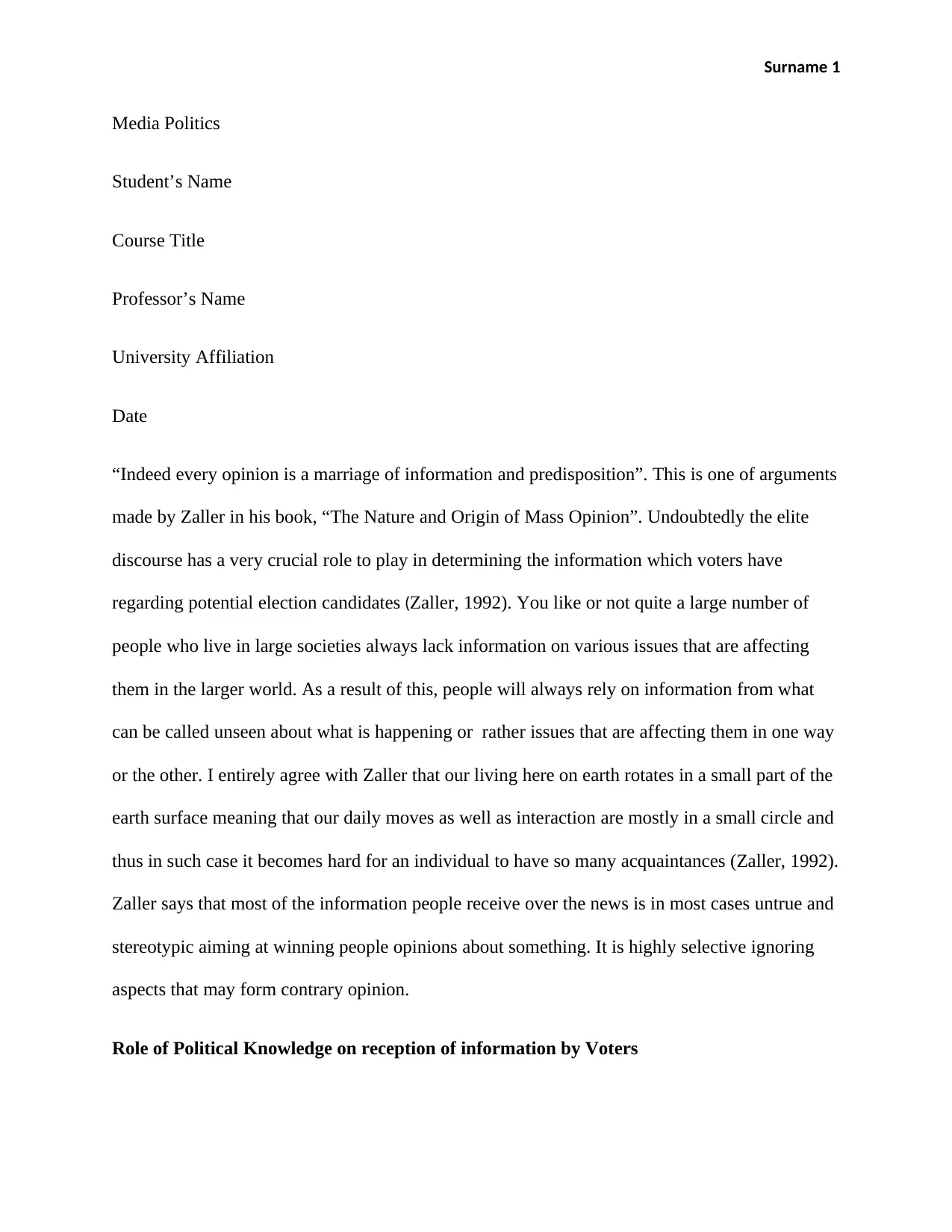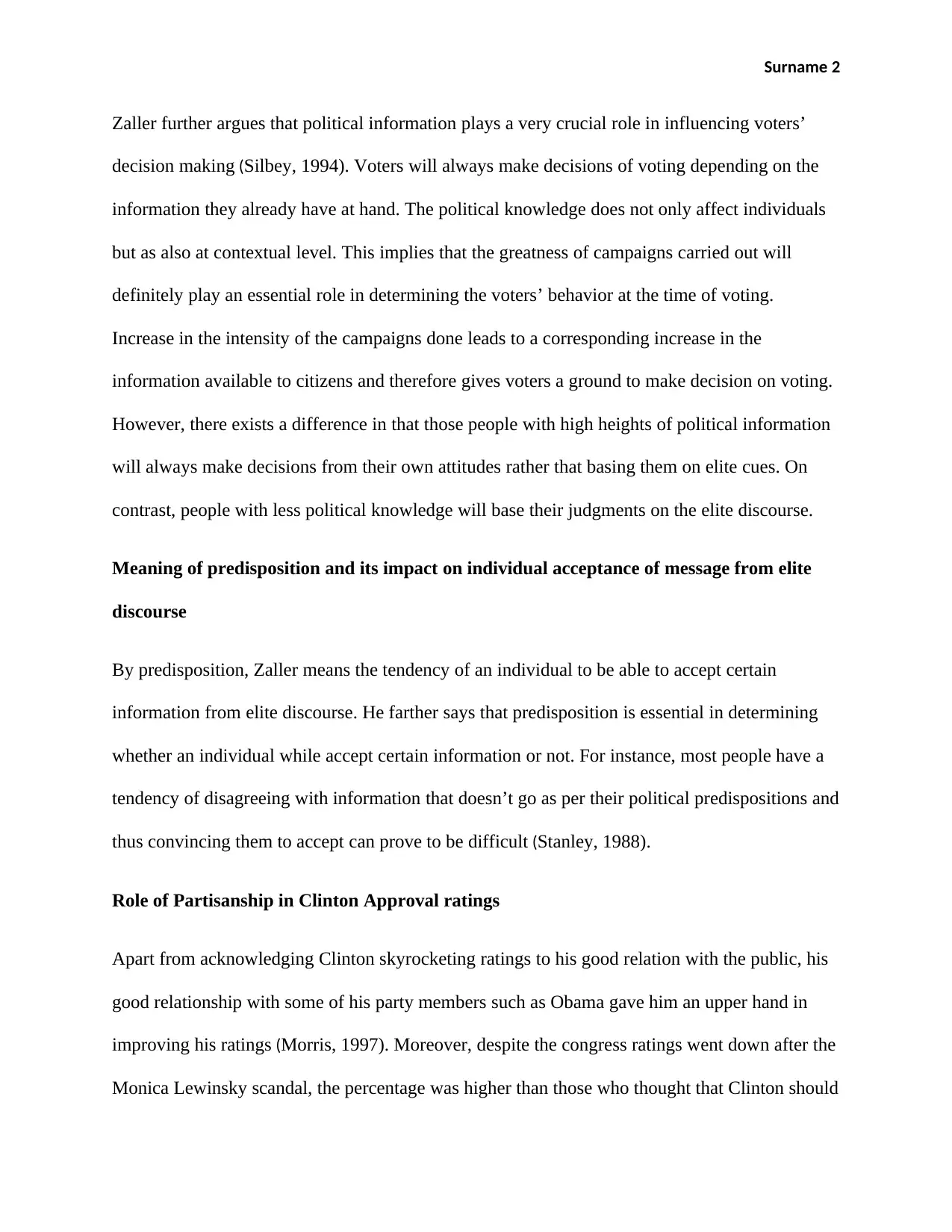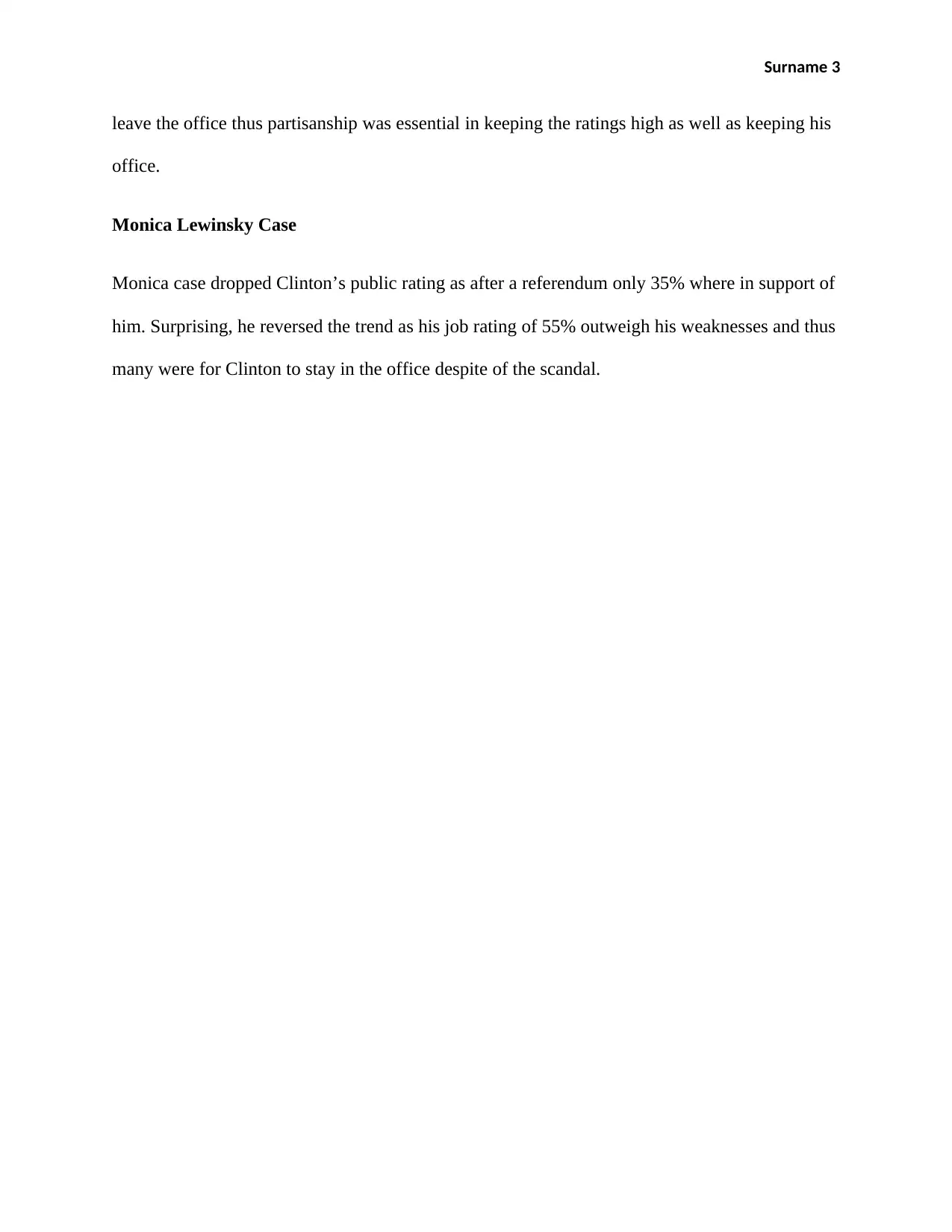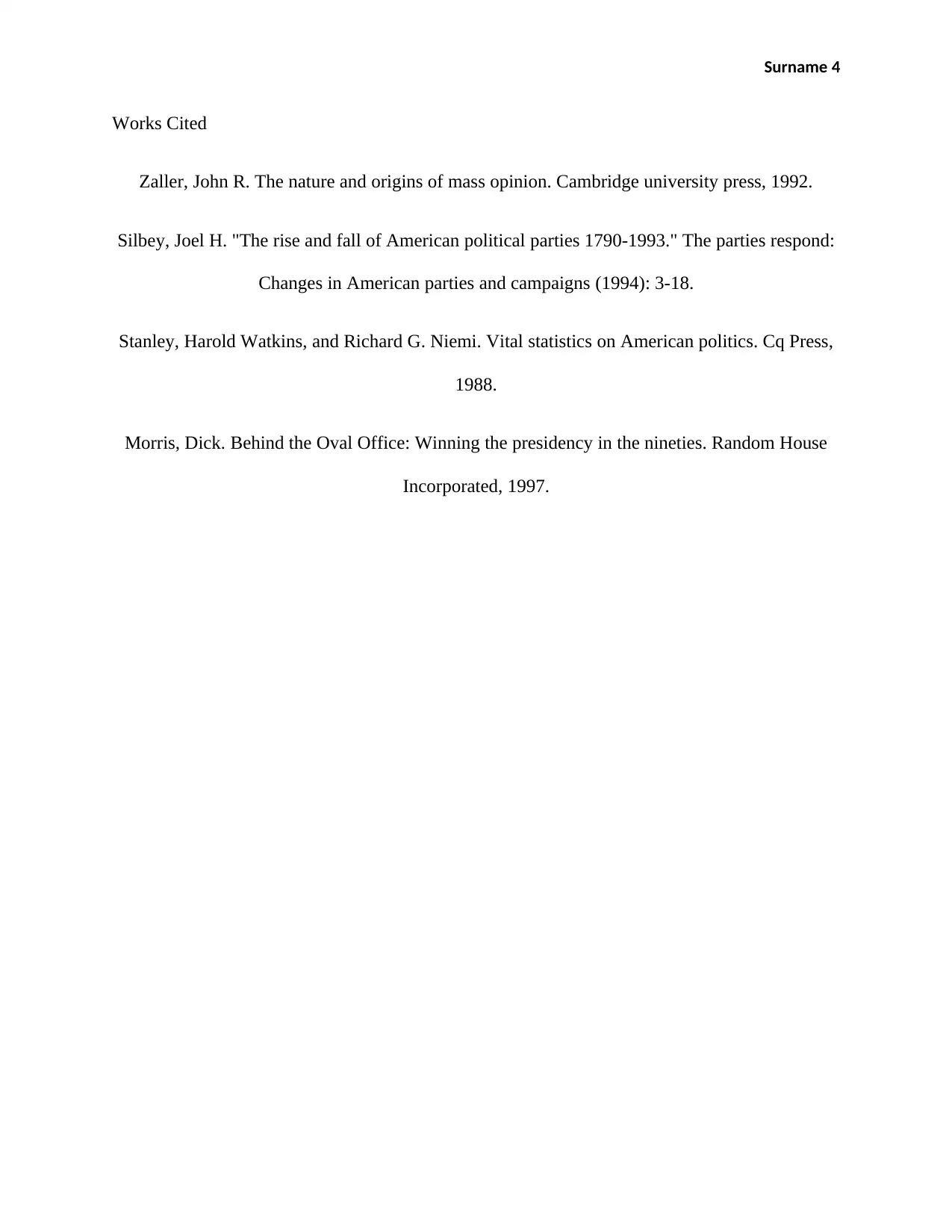The Impact of Media and Politics on Public Opinion: A Zaller Analysis
VerifiedAdded on 2023/05/28
|4
|756
|473
Essay
AI Summary
This essay examines the intricate relationship between media, politics, and public opinion, primarily through the lens of John Zaller's theory. It emphasizes the crucial role of elite discourse in shaping voters' information and highlights how individuals, often lacking comprehensive knowledge, rely on mediated information. The essay agrees with Zaller's assertion that people's daily interactions are limited, making them susceptible to biased or stereotypical news. It further discusses the significance of political knowledge in voter decision-making, distinguishing between those who rely on personal attitudes versus elite cues. The concept of predisposition is explored, noting its impact on the acceptance of messages from elite discourse. Finally, the essay touches on the role of partisanship in Clinton's approval ratings and the impact of the Monica Lewinsky scandal, demonstrating the complex interplay of factors influencing public opinion. Desklib provides access to similar essays and study tools for students.
1 out of 4





![[object Object]](/_next/static/media/star-bottom.7253800d.svg)